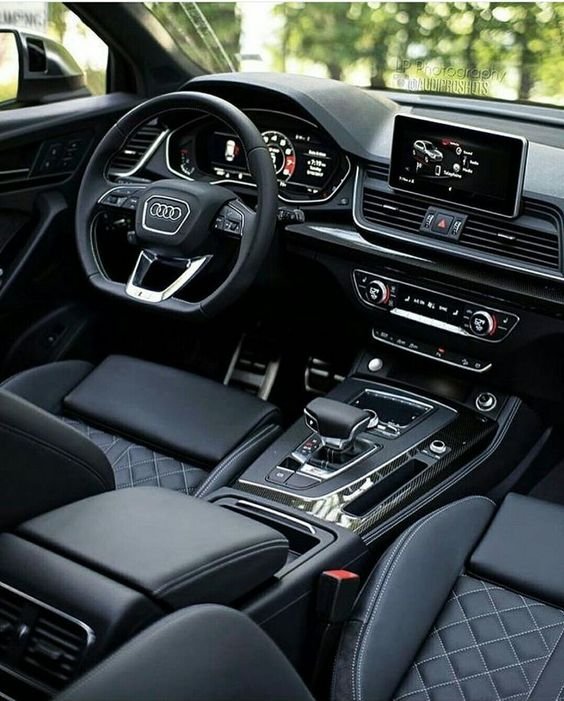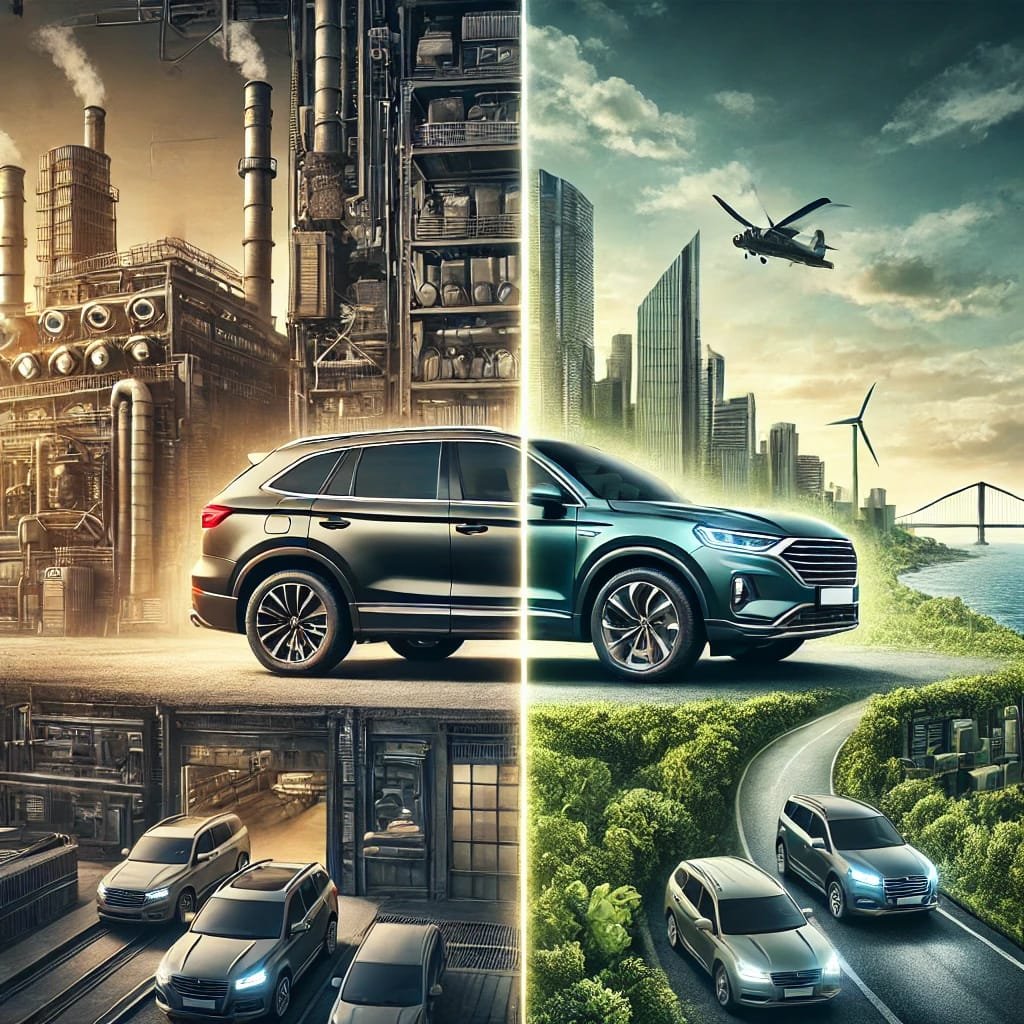
As the world moves towards a more sustainable future, the automotive industry is undergoing a significant transformation. Car manufacturers are increasingly focusing on reducing their carbon footprint, embracing renewable energy, and developing eco-friendly vehicles to meet the growing demand for sustainable transportation. This shift involves not only producing electric and hybrid vehicles but also adopting sustainable practices across the entire supply chain, from sourcing materials to manufacturing processes. Here’s a look at the top 10 car brands that are leading the way in sustainability, based on their commitment to producing green vehicles, reducing emissions, and adopting sustainable business practices.
1. Tesla
Why Tesla is a Top Sustainable Car Brand:
- Leader in Electric Vehicles: Tesla is synonymous with electric vehicles (EVs) and has been a pioneer in promoting zero-emission driving. The company’s range of EVs, including the Model S, Model 3, Model X, and Model Y, offer impressive performance, range, and efficiency.
- Sustainable Manufacturing: Tesla’s Gigafactories are designed to be highly efficient and are powered by renewable energy sources, such as solar and wind power.
- Battery Innovation: Tesla is constantly innovating in battery technology to improve energy density, reduce costs, and enhance recyclability. The company’s commitment to sustainable energy solutions extends beyond cars to energy storage products like the Powerwall and Powerpack.
Sustainability Highlights: Tesla remains a leader in electric vehicle technology and sustainable energy solutions. The company has set ambitious goals to achieve a fully sustainable manufacturing process and is actively working towards expanding its renewable energy infrastructure.
2. Toyota
Why Toyota is a Top Sustainable Car Brand:
- Pioneer in Hybrid Technology: Toyota revolutionized the automotive industry with the introduction of the Prius, the world’s first mass-produced hybrid car. The company continues to expand its hybrid lineup and improve fuel efficiency.
- Investing in Hydrogen Fuel Cells: Toyota is a major proponent of hydrogen fuel cell technology and has introduced the Mirai, one of the few commercially available hydrogen fuel cell vehicles.
- Sustainable Manufacturing Practices: Toyota is committed to reducing its carbon footprint by implementing energy-efficient practices, using renewable energy, and promoting recycling and waste reduction in its manufacturing facilities.
Sustainability Highlights: Toyota’s diverse approach to sustainable vehicles—ranging from hybrids and plug-in hybrids to hydrogen fuel cell cars—shows its commitment to reducing emissions and advancing cleaner mobility options. The brand aims to achieve carbon neutrality by 2050.
3. BMW
Why BMW is a Top Sustainable Car Brand:
- Electrification Goals: BMW has committed to offering a wide range of electric and plug-in hybrid vehicles across its lineup. Models like the i3, iX3, i4, and iX showcase the brand’s dedication to electrification.
- Sustainable Supply Chain: BMW focuses on sustainability throughout its supply chain, including sourcing raw materials responsibly, using recycled materials, and ensuring fair labor practices.
- Green Manufacturing: BMW aims to reduce CO₂ emissions per vehicle produced by 40% by 2030. Its Leipzig plant, which produces the i3, runs entirely on wind power.
Sustainability Highlights: BMW is committed to becoming a leader in sustainable mobility, with a clear strategy to reduce emissions, increase the use of renewable energy, and expand its range of electric vehicles.
4. Volkswagen Group
Why Volkswagen is a Top Sustainable Car Brand:
- Massive Investment in EVs: Volkswagen Group is investing over $90 billion in electric vehicles (EVs) and aims to become the global leader in EV production by 2030. The brand’s ID. series, including the ID.3 and ID.4, exemplifies its commitment to electrification.
- Carbon-Neutral Manufacturing: Volkswagen is working towards carbon-neutral production, with its Zwickau plant in Germany being the first facility to produce cars with a net-zero carbon footprint.
- Focus on Recycling and Circular Economy: Volkswagen has developed a closed-loop recycling process for EV batteries, aiming to recycle up to 97% of battery components.
Sustainability Highlights: Volkswagen’s aggressive push towards electrification and its commitment to sustainable manufacturing practices and circular economy principles underscore its ambition to lead in sustainable mobility.
5. Hyundai Motor Group
Why Hyundai is a Top Sustainable Car Brand:
- Diverse Green Vehicle Portfolio: Hyundai offers a wide range of eco-friendly vehicles, including hybrids, plug-in hybrids, battery electric vehicles (BEVs), and hydrogen fuel cell vehicles like the Nexo.
- Investment in Hydrogen: Hyundai is a strong advocate for hydrogen fuel cell technology and plans to expand its hydrogen-powered vehicle lineup, including trucks and commercial vehicles.
- Sustainable Materials and Processes: Hyundai is incorporating sustainable materials, such as recycled plastics, bioplastics, and eco-friendly leather, into its vehicle interiors.
Sustainability Highlights: Hyundai’s focus on multiple green technologies—hybrid, electric, and hydrogen—demonstrates its commitment to a sustainable future. The company aims to become carbon neutral by 2045, driven by its diverse approach to alternative energy vehicles.
6. Ford Motor Company
Why Ford is a Top Sustainable Car Brand:
- Electrification Commitment: Ford is investing $50 billion in electric vehicle production and aims to achieve 40% of its global sales from electric vehicles by 2030. The Mustang Mach-E and F-150 Lightning are key models in its electric lineup.
- Renewable Energy Initiatives: Ford is investing in renewable energy and energy-efficient technologies to power its facilities and reduce its carbon footprint. The company plans to use 100% locally sourced renewable energy for all its manufacturing plants by 2035.
- Sustainable Materials: Ford is a leader in using sustainable materials, such as recycled plastics, soybean-based foam, and natural fibers, in its vehicle production.
Sustainability Highlights: Ford’s commitment to sustainability extends beyond electrification to include renewable energy use, sustainable materials, and responsible manufacturing practices. The company has set a goal to be carbon neutral globally by 2050.
7. General Motors (GM)
Why General Motors is a Top Sustainable Car Brand:
- Ambitious EV Strategy: GM is committed to an all-electric future and plans to introduce 30 new electric vehicles globally by 2025. The company’s Ultium battery platform is designed to support a wide range of EVs across its brands.
- Renewable Energy Commitment: GM aims to source 100% renewable energy to power its global facilities by 2035 and achieve carbon neutrality by 2040.
- Recycling and Waste Reduction: GM has a strong focus on recycling and waste reduction, including a goal of achieving zero waste in its manufacturing processes and developing a circular economy for batteries.
Sustainability Highlights: GM’s comprehensive approach to sustainability, encompassing electric vehicles, renewable energy, and circular economy practices, positions it as a leader in the transition to a greener automotive future.
8. Nissan Motor Corporation
Why Nissan is a Top Sustainable Car Brand:
- Pioneering Electric Mobility: Nissan was a pioneer in electric vehicles with the launch of the Nissan LEAF, one of the world’s best-selling electric cars. The company continues to expand its EV lineup with models like the Ariya.
- Commitment to Carbon Neutrality: Nissan aims to achieve carbon neutrality across its operations and product lifecycle by 2050, with plans to electrify all new vehicle offerings in key markets by the early 2030s.
- Battery Recycling and Second-Life Applications: Nissan has developed a battery recycling program and is exploring second-life applications for used EV batteries, such as energy storage and grid stabilization.
Sustainability Highlights: Nissan’s early leadership in electric vehicles, combined with its ongoing commitment to carbon neutrality and battery recycling, makes it a key player in sustainable mobility.
9. Volvo Cars
Why Volvo is a Top Sustainable Car Brand:
- All-Electric Ambition: Volvo aims to become a fully electric car brand by 2030 and plans to launch a new electric vehicle every year until then. The company’s XC40 Recharge and C40 Recharge models are the first steps toward achieving this goal.
- Sustainable Manufacturing: Volvo is committed to reducing its carbon footprint by using renewable energy in its factories and working towards climate-neutral manufacturing by 2025.
- Sustainable Materials: Volvo is increasing the use of recycled and bio-based materials in its vehicles and aims to make its entire vehicle lineup free of leather by 2030.
Sustainability Highlights: Volvo’s clear commitment to becoming an all-electric car brand by 2030, along with its focus on sustainable manufacturing and materials, demonstrates its leadership in sustainability.
10. Honda Motor Co., Ltd.
Why Honda is a Top Sustainable Car Brand:
- Electrification Goals: Honda aims to electrify two-thirds of its global automobile sales by 2030 and achieve carbon neutrality by 2050. The company has introduced new electric and hybrid models, such as the Honda e and Clarity series.
- Investments in Renewable Energy: Honda is investing in renewable energy sources and aims to use 100% renewable electricity in all its global manufacturing plants by 2040.
- Focus on Sustainable Innovation: Honda is exploring new technologies, such as hydrogen fuel cells and biofuels, to diversify its sustainable vehicle offerings.
Sustainability Highlights: Honda’s strategy to achieve carbon neutrality by 2050, combined with its investments in electrification and renewable energy, positions it as a key player in the drive towards sustainable mobility.
Conclusion
These top 10 car brands are leading the way in sustainability through their commitment to reducing carbon emissions, expanding electric and alternative fuel vehicle offerings, and adopting environmentally friendly practices across their operations. While each brand has its unique approach to achieving sustainability, their collective efforts are crucial in driving the automotive industry toward a greener and more sustainable future. As consumer demand for sustainable vehicles grows, these brands are well-positioned to meet the challenge and contribute to a cleaner, more sustainable world.






